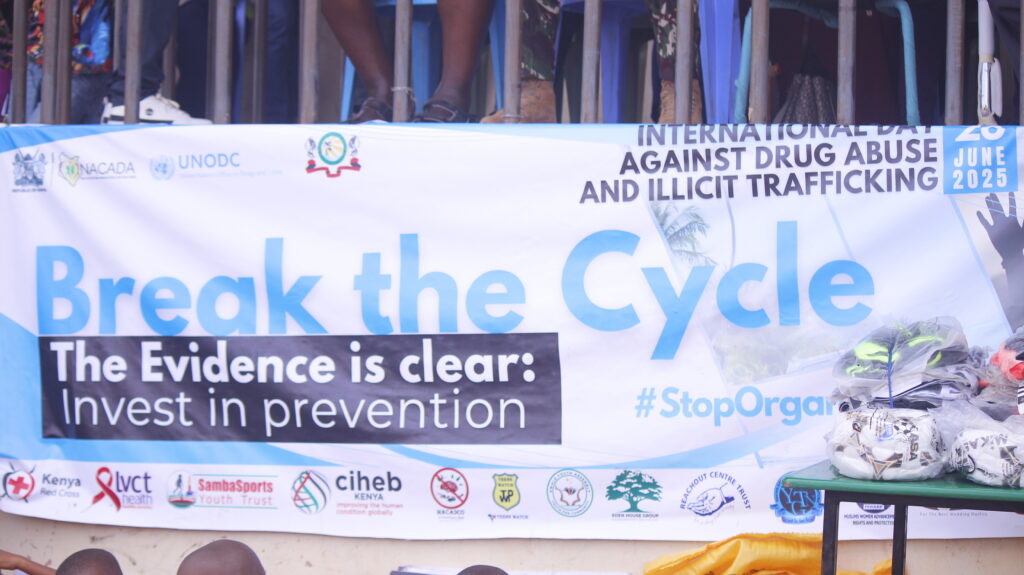Kwale Governor Fatuma Achani has sounded the alarm on the rising tide of drug and substance abuse in the county, warning that prevention is the most effective way than cure.
Speaking during the International Day Against Drug Abuse and Illicit Trafficking that was held at Kombani Grounds, Achani emphasized the need to tackle root causes and break the cycle of dependency that continues to claim young lives across the county.
“We have over 700 drug users seeking daily medication in our rehab centers. Some relapse the same day they receive treatment. That cycle must end,” she declared. “If you haven’t started using drugs, don’t start. Prevention is key.”
The event, held under the theme “The Evidence is Clear: Invest in Prevention,” brought together key stakeholders including NACADA, FACADA, Samba Sports Youth Organization, the Kwale County Government, and individuals in recovery who collectively called for urgent, coordinated action to combat the growing drug abuse crisis.
Kwale County Commissioner Stephen Orinde minced no words in his warning to traffickers and drug peddlers targeting vulnerable youth.
“We will not tolerate those destroying our children. The security team is ready. If you are already using drugs, we won’t cast you out but we will work to get you the help you need,” Orinde said.
The UNODC’s World Drug Report 2024 underscores the urgency with an estimated 39.5 million people suffering from drug use disorders, yet only 1 in 5 receives treatment. In Africa, the situation is made worse by limited treatment access, weak health systems, and porous borders.
In Kenya, legal substances dominate the addiction landscape. A 2022 NACADA report shows alcohol (11.5%), tobacco (8.5%), and khat/miraa (5.6%) as the most abused drugs. Coast region, and Kwale in particular, bear the brunt of this public health crisis with rising cases of HIV infections, teen pregnancies, gender-based violence, and organized crime linked to drug abuse.
Eunice Kijala, NACADA’s County Coordinator, revealed that a new NACADA office has opened in Kwale due to the growing severity of the problem.
“This crisis has caused family breakdowns, organized crime, and increased cases of diseases like cancer, bipolar disorder, and HIV,” said Kijala. “It’s our collective responsibility to fight this battle, not just NACADA’s.”
One of the day’s most powerful moments came from Ngoni Said, a fully recovered once drug addict, who bravely shared his journey through addiction, crime, incarceration, and ultimately recovery. Though he escaped HIV, he contracted Hepatitis C during his years of drug use—later cured after treatment.
“I started at home. I lied, I stole, I was jailed. But I turned my life around,” he said. Ngoni is one of the over 1,000 victims treated at the Kombani Methadone Centre which offers therapy and medical support.
Achani noted that the Kombani Rehabilitation Centre has so far supported over 870 clients, including 600 in short-term residential care. She praised the center’s impact but warned against overreliance on treatment when prevention is still possible.
The whole event was underscored by a youth-led football tournament among four teams: Young generation FC, Samba Sports Youths FC, youths from rehab and Kombani Youths FC. Samba Sports FC emerged the winners of the IDADA tournament with a 2-0 victory against Kombani Youths.


